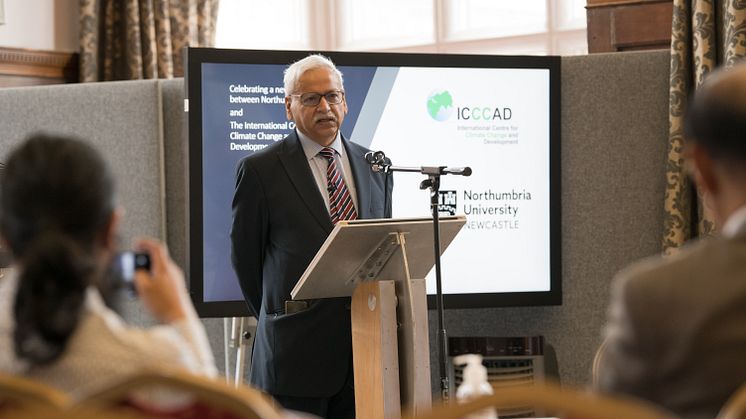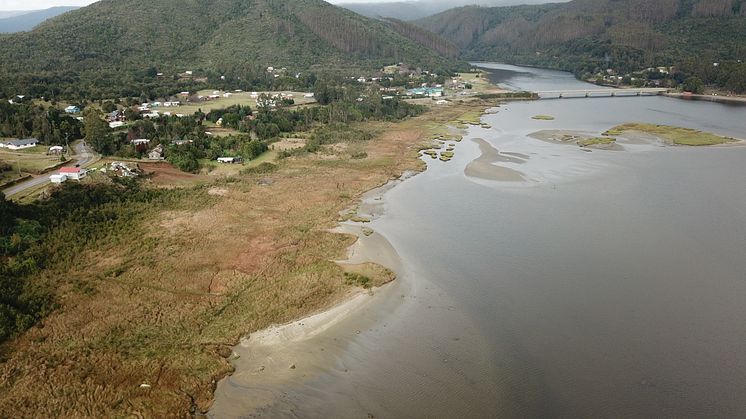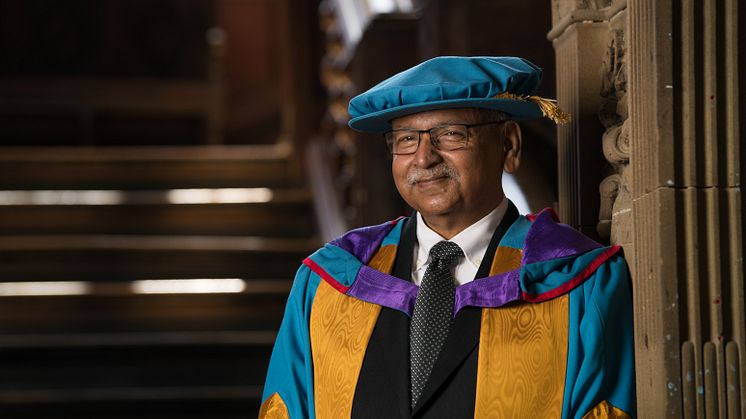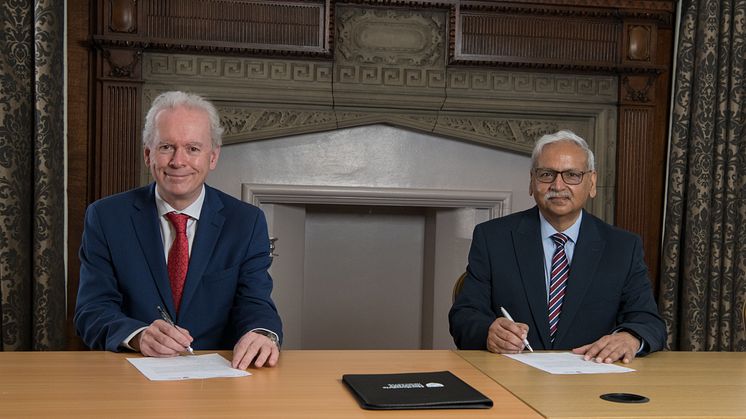
Press release -
New partnership places increased focus on climate change research
Northumbria University is set to advance its world-leading research in issues relating to climate change, adaptation, loss and damage after forming a new strategic partnership with the International Centre for Climate Change and Development.
The Centre, which is known as ICCCAD, is based at Independent University, Bangladesh, one of the leading private universities in Bangladesh, and is one of the most globally prominent organisations working on climate change and development.
Bangladesh is one of the world’s most vulnerable countries to climate change, frequently being affected by major floods, cyclones and other natural disasters. As such, ICCCAD has specialist expertise on local experiences of the impacts of extreme weather resulting from climate change.
The new partnership will help to expand research capacity for both organisations and bring new perspectives to research undertaken by many of Northumbria’s specialist research groups.
This includes the Global Development Futures group which focuses on development, disasters, social and cultural geographies, and the Centre for International Development, which brings together academics, practitioners and students to address issues around global poverty and inequality.
Through the partnership, Northumbria staff and students will also undertake fellowships, internships and collaborative research with ICCCAD on issues around climate change adaptation and development, both virtually and in Bangladesh.
Northumbria’s Vice-Chancellor and Chief Executive Professor Andrew Wathey marked the formation of the partnership by signing a memorandum of understanding with Professor Saleemul Huq, Director of the Centre.
Professor Wathey said: “ICCCAD’s interests strongly align with the approaches and focus of a number of Northumbria University’s multidisciplinary research areas.
“Our collaboration will facilitate the development of joint research and new routes to impact, and open up new learning opportunities for our students in the areas of climate change and sustainable development.”
“Importantly, it will facilitate collaborative efforts towards knowledge sharing on some of the most pressing issues of climate change and sustainable development and will enable Northumbria University to contribute to a growing demand for a paradigm shift in knowledge transfer, from the global south to the north.”
Professor Saleemul Huq who leads ICCCAD is an expert on climate change in the most vulnerable developing countries. He was recently ranked as the fourth most important climate change influencer in the world.
As the lead author of several IPCC assessment reports and advisor to the Least Developed Countries Group on the United Nations Framework Convention on Climate Change, he is also one of the few people to have attended all 26 COP conferences.
Professor Huq travelled to Northumbria to sign the memorandum of understanding directly from speaking at COP26 in Glasgow and delivered a special lecture for staff, students and partners on his time at the conference and his work to encourage governments to recognise the topic of loss and damage from human-induced climate change.
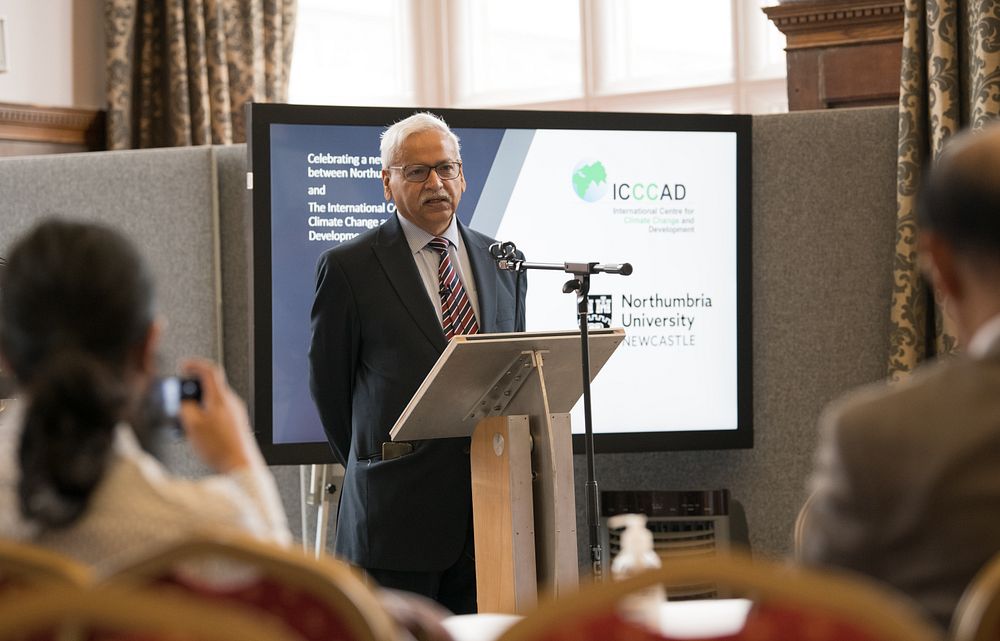
Speaking about the benefits of the partnership with Northumbria University, Professor Huq said: “I firmly believe that agreement between ICCCAD, Independent University, Bangladesh and Northumbria University will contribute to innovative thinking and generation of new knowledge through collaborative research focusing particularly on capacity building and climate justice in the UK, Bangladesh and beyond.”
Northumbria University works closely with communities, policy makers, practitioners, charities and governmental bodies to address issues relating to climate change, poverty and inequality.
Examples include Northumbria’s leading role in the £200m UKRI Global Challenges Research Fund, where academics in the Living Deltas research hub are exploring the changing environments of river deltas in South and South East Asia which support over half a billion people and in the Urban Disaster Risk Hub which aims to help the cities of Kathmandu, Istanbul, Nairobi and Quito to be more resilient to extreme events such as floods, earthquakes, cyclones and landslides.
Topics
Categories
Northumbria is a research-rich, business-focused, professional university with a global reputation for academic excellence. Find out more about us at www.northumbria.ac.uk --- Please contact our Media and Communications team at media.communications@northumbria.ac.uk with any media enquiries or interview requests ---








